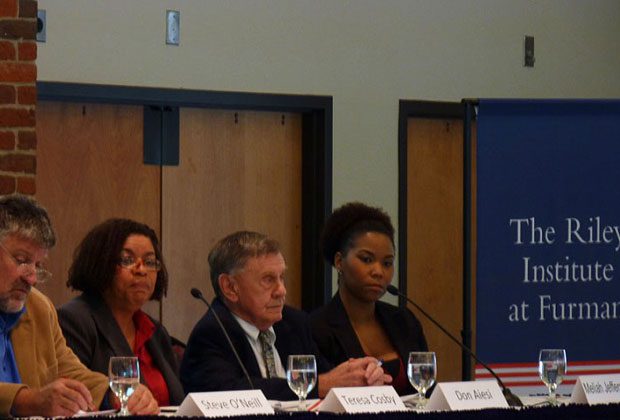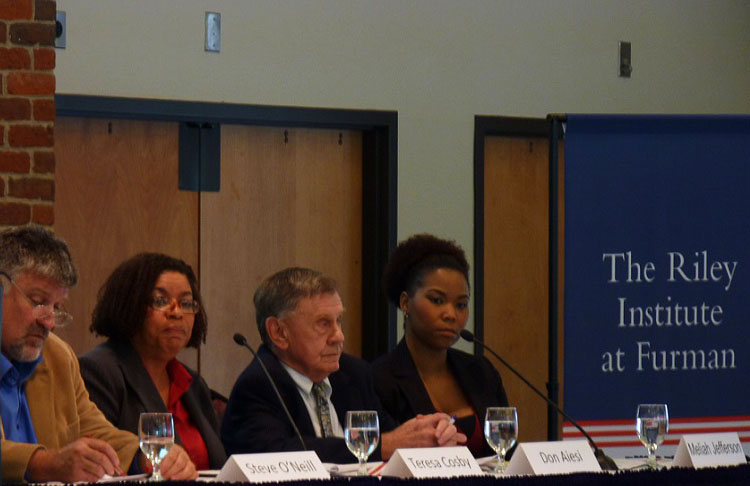Furman Professors discuss Voting Rights Act

Voter rights have become a hotly debated topic since the U.S. Supreme Court’s decision to annul a key provision of the Voting Rights Act this past June.
The provision, titled Section 4 of the Voting Rights Act, required that certain states, a majority of them located in the South, receive clearance from the Justice Department before making changes to their voting laws.
The negation of Section 4 stemmed on the perceived unconstitutionality of the law regarding states’ rights and also its dependence on voter data that many found obsolete. Proponents of the change, too, said the states had righted past discriminatory voting practices and should be treated as other states. Some detractors say the law is still needed to protect the voting rights for poor and minority voters.
In a CLP given Tuesday by the Riley Institute, a panel of Furman professors and specialists in Constitutional law voiced their opinions about what the changes to the Voting Rights Act could mean for future elections and addressed the arguments both for and against the Supreme Court’s decision.
The event, held in the Watkins Room of Trone Student Center, was moderated by Furman History Professor Steve O’Neill, who opened the discussion with a brief overview of the history of the Voting Rights Act and its effect on the current political climate of the United States.
“The situation virtually demands that a historical context be used to explain the current ramifications of the move by the Supreme Court,” said Dr. O’Neill.
He referenced the origin of the Voting Rights Act as a measure against what he called the “systematic disenfranchisement of racial minorities” by former states of the Confederacy. It is from this historical element, that the current conflict arises.
“The key question is whether some or all provisions of the Voting Rights Act are still necessary,” said Furman Political Science Professor Teresa Cosby, a member of the panel. According to Cosby, a former South Carolina Assistant Attorney General and former director of the South Carolina Centers for Equal Justice, the reason for the Supreme Court decision to void certain components of the Voting Rights Act was due to the outdated provisions concerning state voting laws.
“The act wasn’t speaking to current conditions in the states included in its provisions,” said Cosby.
“The law singled out certain people to act one way while others acted in another under the Constitution,” added panelist Don Aiesi, also a Political Science professor and member of the Supreme Court Bar. “We’re all under the same constitution aren’t we?”
The key factor agreed upon by the members of the panel was the need to rethink how the Voting Rights Act could function under modern circumstances.
The discussion was concluded with a statement by panelist and Guest Speaker Meliah Bowers Jefferson, an associate of the Wyche Law Firm in Greenville.
“There needs to be a grassroots effort to revamp how the Voting Rights Act is applied to individual state voting laws,” she said.